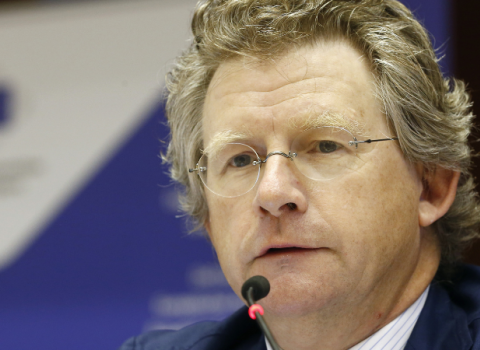An investigation into how to increase food supplies for the world’s growing population and at the same time ensure crops are grown sustainably, has concluded more investment is needed in research and development.
R&D is critical to producing more food efficiently and sustainably, to keep pace with evolving threats such as the emergence of new and more virulent pests, and to develop new varieties of crops that are resistant to drought, flooding and salinity arising from climate change, according to, ‘The Future of Food and Farming: Challenges and choices for global sustainability,’ published this week by the UK Government Office for Science.
One of the most critical drivers of future food supply is the rate of growth of yields due to new science and technology. New knowledge is also required for the food system to become more sustainable, to mitigate and adapt to climate change, and to feed the poor.
No panaceas
“These challenges will require solutions at the limits of human ingenuity and at the forefront of scientific understanding,” the report says. No one technology or intervention will be a panacea, but there are real sustainable gains to be made by combining biotechnological, agronomic and agro-ecological approaches.
But because of the significant time lags in reaping the benefits of research, investment in R&D needs to be made now to solve problems in the coming decades. Investment needs to occur not only in biotechnology research, but across all the areas of the natural and social sciences involved in the food system.
Indeed, there is a strong case for reversal of the low priority accorded to research on agriculture, fisheries and the food system in most countries, says the report, noting that countries such as China have demonstrated the effectiveness of agricultural research in raising productivity.
While recent advances offer opportunities to address major environmental challenges such as climate change, water scarcity and soil degradation, new research on climate change adaptation and mitigation in the food system should be a priority.
The aim of this research should be to focus on raising yields whilst improving
sustainability and maintaining ecosystems. This shift must recognise that special measures will often be needed to incentivise research that produces public goods.
Particular priorities
While there is much to be done, the report singles out some priorities including:
- the development of new varieties or breeds of crops, livestock and aquatic organisms, capitalising on recent advances in the biosciences, including genetic modification;
- the preservation of multiple varieties, land races, rare breeds and closely related wild relatives of domesticated species. This is very important in maintaining a genetic bank of variation that can be used in the selection of novel traits;
- advances in nutrition and related sciences to improve the efficiency and sustainability of animal production;
- research in soil science and related fields. These have been relatively neglected in recent years, but offer the prospect for a better understanding of constraints to crop production and better management of soils to preserve their ecosystem functions, improve and stabilise output, reduce pollutant run-off and cut greenhouse gas emissions;
- targeted research in modern crop and animal science, agro-ecology, agricultural engineering and aquaculture management. Research across a broad range of subjects, including areas that have received less investment in recent years, is critical to improving yields and sustainability at the same time.
Foresight. The Future of Food and Farming (2011); The Government Office for Science, London.





 A unique international forum for public research organisations and companies to connect their external engagement with strategic interests around their R&D system.
A unique international forum for public research organisations and companies to connect their external engagement with strategic interests around their R&D system.